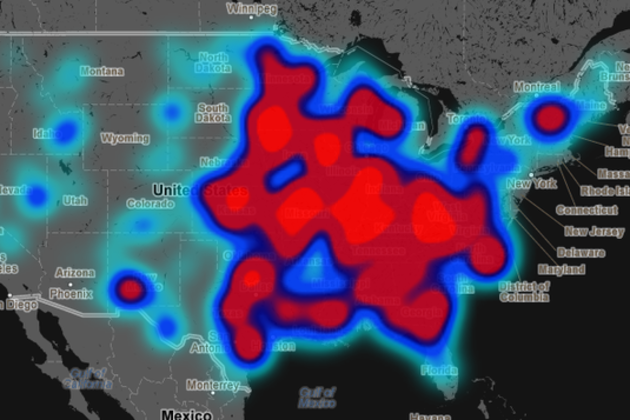Prior to emigrating, I found myself vigorously defending Raph Koster on Twitter. It started as a result of this article, in particular this quote from Anna Anthropy:
"Videogames have been one of the most exclusive communities i've ever encountered," she said to me via email, "some dudes, like Raph Koster, insist that when he says dys4ia 'isn't a game,' that's not a value judgement. That's bullshit. the attempt to label games like dys4ia as 'non-games,' as 'interactive experiences,' is just an attempt by the status quo to keep the discussion of games centered around the kind of games it's comfortable with—cus if there's one thing existing videogame culture is good at, it's making a certain kind of dude very, very comfortable."
I've noticed a recent uptick in this "certain kind of dude" argument. On the one hand it's about the acceptance and treatment of women, minorities and other groups within the game industry - and rightly so. On the other it's about the perception of patriarchy. It's saying that a "certain kind of dude" oppresses creative people with his view of an industry organised around keeping him happy, and he uses the definition of "game" as an exercise of power.
This assertion is far more contentious because it conflates three different discussions. The first is political and asserts that passivity or apathy are actually forms of complicity. The second is to do with market preference, asking why is it that the white-dude market buys certain kinds of game endlessly while ignoring greater diversity. This point lays the blame at the feet of the industry, whereas the industry maintains that market dynamics are evolutionary and so the industry chases the market rather than dictating to it.
The third discussion is about critique. To many formalists (myself included) many new kinds of interactive art are either not games, or not very good when thought of as games. Many are gamelikes, gamified systems, limited, persuasive, personal interactive stories. Some are virtual worlds. Some are more conceptually interesting than playable. Many are reliant on knowing the author's intent.
In creating a "game" not meant to be played or won, its creator is saying something. To then call that work something other than "game" can seem like an attack directed at its creator. Particularly for the group that could loosely be termed "zinesters", "game" has become a highly charged art-politik battleground that has to be won. Increasingly zinesters have taken to folding formalism into the patriarchy, complicity and "certain kind of dude" debates to paint all with the same broad brush.
Not only is that yet another attempt to win the debate over games through equivocation, it has the effect of dissuading some otherwise-interesting voices from engaging. Some, like Raph, continue to try such as with this open letter in which he discusses the debate and its personal side (an indie developer he respects crossed the street to avoid him at GDC) only to find himself yelled-at once more on Twitter. The question for zinesters is this: Is yellers and name-callers essentially all you are?
Because if so, zines will inevitably flame out.
Poor Enemies
Zinesters consider themselves to be an emerging class of interactive artist. Their work covers everything from their life stories to observations about the universe and purely aesthetic experiments, and that work takes thousands of forms. In her book, Rise of the Videogame Zinesters, Anna Anthropy paints the movement as akin to Youtube uploaders or other aggregate-media makers, free of the shackles of commercialism or elitism, and able to make whatever they want. Quite right too.
And yet unlike Youtube uploaders, zinesterism also has a combative side. Provocateurs like Anna appear at GDC and read poems about their struggles, fights, victories and defeats in the battle for true equality. Sometimes zinesterism goes beyond even that. For some the struggle is less about validation of self and more about the invalidation of others. It's about the opportunity to yell "I'm as mad as hell at you, token white dude". It's to say you just want an enemy.
We may be formalists, but writers like Raph or I are the wrong kind of enemy if your intent is to defend the right of game makers to make statements with games because we agree with you. Among our ranks you'll find some of your strongest supporters, passionate advocates and earnest evangelists. You'll find fierce debate and considered responses as we try to come to a point where our critical framework is both as inclusive and as clear as possible. But you'll find few people who fault your works on quality for those reasons (As an aside, in the rush-to-judgement in recent weeks over this whole issue, where many are content to maintain that value judgements and the like are at the heart of what-is-a-game, none of its proponents have yet cited a credible example of this.)
What you will also find, however, is people who have been around the gaming block a few times. People who have seen this struggle over "what is a game" happen before. People for whom the idea of a game that uses permadeath to make a point is not startlingly original. People for whom the cleverness of character reversal and the notion of play as self-loathing, or games that demand to not be played, are ideas that they've seen before. People for whom the debate has little or nothing to do with their own sense of power and everything to do with trying to get to a better understanding. People to whom zinesters seem intent on repeating a very old mistake.
Toward the end of the 80s a desire grew among young tabletop roleplaying gamers (myself included) to push beyond the limits of numbers. We started talking about roleplaying games as storytelling games. We regarded many old guard gamers who talked of campaigns, classes and hit points as quaint. We were convinced that one day "game" would have room for stories, epics and themes. We talked endlessly about non-plot narrative, non-rule games and moving beyond fun.
The early energy surrounding this movement led to lots of creative output. The sorts of game we created were concept pieces. We worked on games that were intended to explore themes of mythology, identity and sexuality. At first we used traditional backgrounds, plots or mechanics, but over time moved into stylistic territory, the roleplaying equivalents of Pirandello's Six Characters In Search of an Author. We were essentially the proto-form of today's zinesters.
For us this was fascinating stuff, but it gained no traction beyond our ranks. So over time we descended into an increasingly introverted conversation. While the rest of gamerdom didn't care so much, we became factional and obsessed over minutiae, slights and perceived insults. We went from being a passionate tribe to a collection of niches who bitched about one another, and over time we shrank. "Game" remained much as it was, despite all of our bluster, and by the late-90s it had pivoted back to its roots through Dungeons and Dragons 3rd edition.
This, largely, is the pattern that zinesterism seems to be following.
On Whose Terms
For storytelling roleplaying games the premise that, by changing the meaning of "game", the rest of the world would follow along and validate the revolution was self-deception. "Game" did not change for those outside the scene, and instead it was swallowed up by its larger, older parent. In a digital form, I fear that zinesters are making exactly the same mistake.
As an oft-uncertain white dude who happens to write a fair bit about games, I have recently encountered a lot of defensiveness surrounding the idea of what games are. Those arguments tend to boil down to "you don't like it", "it's not meant for you", "it sold X copies" or even "you secretly hate games". I suppose I should expect that kind of reaction given that I am pretty forthright. I often say that the most effective ways of conveying the artistry of games (thauma) needs to come from a place that is game-native, and that that enables and restricts the game's maker in some ways. I tend to advocate for the player, for the need for games to be dynamic in order to build up to a convincing world.
I have also been known to say that some interactive artworks are not games. I don't, for example, consider Dear Esther a game, nor Proteus. I don't think The Passage is a game, nor The Stanley Parable nor most Tale of Tales' work. I consider them to essentially be gamelike performance art.
Taken on its own terms, art can be very powerful. However, taken on the terms of something else, art can invite unfortunate comparison. Depending on how you regard it, Marcel Duchamp's Fountain is either a classic work of modern art or an example of conman craft. Similarly, taking some interactive art on the terms of games devalues it enormously. Proteus might be interesting, one might say, but it's not much fun. Interactive art like Proteus struggles for traction outside of academia, certain sections of Steam, highbrow publications or conferences like GDC, because to label it as "game" invites comparison with the usual understanding of game that involves doing to overcome.
Zinesters are asking for their work to be taken in the same breath as casual and hardcore videogames, puzzles, crosswords, sports, the Olympics, the World Cup, the casinos of Las Vegas and so on. Furthermore their work's lack of fun leads to some negative reactions (such as this satirised review of Super PSTW), which in turn leads to creators equating incomprehension or apathy to a "certain kind of dude" who deliberately shuts them out. And so it seems that "game" won't change to include them because the patriarchy is afraid/unsure/resistant.
And this is true of many gamelike art works. Many of them are challenging, observant or interesting but they ultimately sideline themselves by wanting to be spoken of in the same breath as games. Their gameplay tends to be thin. They tend to be either unidirectional ("this is my message") or directionless ("just walk around"). They tend to sound interesting as high concepts for GDC talks. Yet they're not games.
The Forms and Labels of Interaction
The fact that The Color Purple exists means as much for the novel as the content within it. To some designers it's basically the same with games. Rise of the Videogame Zinesters lays out the argument that because games are mostly made by geeky white dudes for geeky white dudes, they tend to be mono-cultural. Muscular men shooting other muscular men in the face is the order of the day, and women tend to either be swapped out for men in that scenario, or relegated. There are very few gay women avatars in games.
I mostly agree. Big blockbuster games do tend to be mono-cultural and involve a lot of shooting dudes in the face. Yet at the same time bridging those issues with "what is a game" - and demanding that anything interactive and artistically expressive be considered a game - is unsound.
"Novel" is a format of story, not a token of legitimacy. Alice Walker's novel is as much a novel as Jane Austen's because they are two instances of the same general format (a long-form arced tale with internal and external writing etc). The argument over the acceptance of one kind of novel over another what that means for society is usually separate from the argument of whether or not it is a novel (although, granted, some modernist and postmodernist works have deliberately tried to play with the format).
Howl is a poem. A poem has a different format, kind of structure and voice than a novel. We can comfortably understand and accept that poetry and novels are two kinds of writing, and in order to maintain attention and interest from the reader they each operate according to their own rules. Similarly we can see that the short story, screenplay, comic, theatrical play or song also have their own special requirements. None of those formats are any more or less valid than any other. Novelists don't spend all of their time wishing poets would include them.
What the angrier zinesters seem to want is the equivalent of Ginsberg demanding that Howl be recognised as a novel. For some reason they believe that "game" means "valid, legitimate, in-the-club", something to be won back from the hands of the white dudes.
What fascinates me is how much that in itself is a tacit acknowledgement that (despite all arguments to the contrary) apparently labels do matter to the zinesters. If zinesterism really was just about self-expression, it wouldn't matter what formalists thought. Despite it being something of an ideal to exist in an aggregate everyone-can-publish universe of making whatever you want, a world beyond labels and types, zinesterism is obsessed with owning a particular label. It seems to revolve around wanting to have legitimacy granted to it by hook or by crook, which I find undoes it somewhat.
The label issue is also one that only exists in the zinester space. Outside of it, nobody gives a good god damn. In the everyday world, "game" is a noun that describes a mode of play. "Game" means sport, puzzle, task, problem and test. Games can be won or lost. Games can be practiced. Games may open a door to understanding and emotional enlightenment, generate heroes and cultural lodestones, but they do so through creative constants. They must operate under the joy of winning while mastering fair game dynamics.
Otherwise, as games, they don't really work. And the judgement criteria for why this is so comes not from patriarchy or shadowy cliques, but from players. If a game is not fun it is simply not played for long, regardless of its intent. Games are meant to be played. However none of that is true of interactive performance art if the player knows that it is not meant to be a game.
But how to convey that intent?
Zines
I think there's a solution to this conundrum, a formalist solution no less. I also think that many zinesters are not going to like it. Maybe in time.
In her book, Anna describes a class of maker analogous to the newsletter-zine-makers of years past. Such people are generally considered outside the mainstream, working away on personal projects and finding fans the hard way. Zinesters are typically not programmers (whom she categorises as white middle class dudes, etc.) and they have tools like GameMaker or Twine to make their art.
Rather than call that art "game", "gamelike", "notgame" or get into arguments over just how much game is game or not, or getting stuck in the quagmire that is "interactive entertainment", Anna (perhaps inadvertently) supplies us with a great term. "Zine" strikes me as a very neat term to describe a political and critical intent, a description of how a thing is meant to be approached rather than a classification of what it is.
Some zines may be games, for example. Some zines may be gamelike, but not games. Some zines may be toys. Some zines may be worlds to be wandered for no particular purpose. Some may be digital promenades. Some may tell stories. Some may deliberately not. Some zines may be none of the above, or incorporate aspects of all. Some zines may be digital. Some zines may be analogue.
"Zine" is a label that demands a work be regarded on its own terms, much as "modern art" does, rather than describing a format, as "statue" does. Zine allows the discussion to get past issues of who gets to be in what club. dys4ia and Warioware, for example, could be considered as contrasting examples of zine vs not-zine, irrespective of whether they are games. The main differences between them are:
- How they treat challenge
- Whether they are meant to be replayed
- How they treat learning
- Whether failure is possible
- Whether emergence is desired
Warioware tests player skills and ramps up those tests. It is meant to be replayed, often for long periods of time. It is meant to be mastered. Failure is possible, as are emergent effects. Every time a group gathers to play the party version on a Wii, funny and unexpected things happen. This all makes Warioware a game, but not a zine. Warioware is ultimately a commercial product intended to delight or entertain, and any sense of personal expression within the game is likely to only be found around its edges, if at all.
dys4ia tests player preconceptions. Its tests do not become more difficult (in terms of skill) but they do become more emotionally illustrative. It is meant to be replayed a couple of times, but not many. It is not meant to be mastered, but participated-with, so the player comes to understand the depth of its author's situation. Failure is not really possible, only delays of success. Emergent effects likewise - dys4ia is deliberately experient. It is personal, authored, intended to paint a picture and conjure a feeling that its creator experiences (which is the definition of art according to Tolstoy) every day.
Viewed in the context of "game", on games' terms, dys4ia does not have much in common with Warioware, Chess, the 100m hurdles, Darts, Tetris, Backgammon, Halo, Poker, Ridiculous Fishing, Snake, Go, Arkham Horror, Tag, Diablo, kiss chasing or slot machines. It's not much fun, nor mechanically fascinating. You don't really win or get better at it. Those are the sorts of qualities that generally describe games.
Viewed in the context of "zine", however, the question of whether dys4ia is a game, or how much, or what parts might be, is irrelevant. So is the question of whether it is fun. As a zine, as a piece of performance art that illuminates the player about what it is to be transgender, dys4ia is amazing. By thinking of it as a zine, I find I can get past its gameyness or lack thereof.
Toward Détente
It makes sense in my mind, but my instinct tells me that my "zine" label notion won't fly. Perhaps we'll end up in a place where, like the gameplay vs story debate, everyone eventually concludes that the whole thing was predicated on straw man arguments. Perhaps we'll end up with a "Game" and "game" distinction (like "Art" and "art") or a convention like "performance game" or "gamezine" that fudges definitions of game specifically to accomodate zinesters.
However at this point I am inclined to say it is up to zinesters to decide who they want to be. As a formalist I'm personally growing bored of hearing a lazy argument that clumps all white dudes together and proclaims that any opinion a white dude may have is suspect and equates to non-specific-complicit-apathetic oppression. In part I was motivated to write this article to explain why, for all its virtues, I tire of listening to certain ranters rant the same rant over and over, how the novelty of that rant will fade away, and how it seems to me that zines are currently just a bit of history repeating.
Right now zinesters are not giving much of a reason for people who don't already agree with their general viewpoint to care. They seem more content to yell and be acknowledged by their own tribe, but that energy will eventually peter out if it does not engage with others. The passions of zinesterism are not to be trifled with or denied, but the risk of it marginalising itself is strong. Rants are important, but after a while there needs to be more.
I can't help but feel that the zine movement's fight with straw men will ultimately relegate it to a kind of angry-to-be-angry nub. I can't help but think that the movement will eventually fracture, as the storytelling-game movement did. In the hunt to find enemies, I can't help thinking that zinesterism will ultimately start to find enemies in its own ranks and become cannibalistic. All it takes for zinesterism to fail is for people to ignore it, to conclude that all it is just fringe folk being fringe folk. Personally I think if zines end up in that box, it will be tragic.

9())
 In a bold move to protect the well-being of dolphins, India has moved to ban dolphin shows -- a push that helps elevate their status from creatures of mere curiosity to one that borders more closely to the personhood we seem to share.
In a bold move to protect the well-being of dolphins, India has moved to ban dolphin shows -- a push that helps elevate their status from creatures of mere curiosity to one that borders more closely to the personhood we seem to share.
 It is Endangered Species Day and we are acknowledging it by bringing attention to these canid species that are on the brink of disappearing.
It is Endangered Species Day and we are acknowledging it by bringing attention to these canid species that are on the brink of disappearing. It is Endangered Species Day and we are acknowledging it by bringing attention to these feline species that are on the verge of disappearing.
It is Endangered Species Day and we are acknowledging it by bringing attention to these feline species that are on the verge of disappearing.







 It is a sign of our rapidly changing world that we can get daily updates on the growing levels of carbon dioxide in the atmosphere via Twitter.
It is a sign of our rapidly changing world that we can get daily updates on the growing levels of carbon dioxide in the atmosphere via Twitter. If you happen to know of any female fish of the Mangarahara cichlid variety, the London Zoo would very much like to introduce her to a couple of extremely
If you happen to know of any female fish of the Mangarahara cichlid variety, the London Zoo would very much like to introduce her to a couple of extremely



 It may be cliché, but I couldn’t resist the opportunity to make churros in time for Cince de Mayo. Over the past year or so, I’ve become slightly enamored with them thanks to the fantastic churros at
It may be cliché, but I couldn’t resist the opportunity to make churros in time for Cince de Mayo. Over the past year or so, I’ve become slightly enamored with them thanks to the fantastic churros at  Have you ever made churros? Or if you have at least eaten them, what do you like to dip them in? I think the vanilla ice cream is totally the way to go, but Ben likes the chocolate sauce. I know some people dip them in hot chocolate, which also sounds pretty great. I hope you all enjoy some amazing Mexican food this weekend. I know I will!
Have you ever made churros? Or if you have at least eaten them, what do you like to dip them in? I think the vanilla ice cream is totally the way to go, but Ben likes the chocolate sauce. I know some people dip them in hot chocolate, which also sounds pretty great. I hope you all enjoy some amazing Mexican food this weekend. I know I will!
 Even in the dark pit of poverty, where rays of hope shine their dimmest, there's often still light enough for a new life to take hold.
Even in the dark pit of poverty, where rays of hope shine their dimmest, there's often still light enough for a new life to take hold.




 It works for cigarettes, why not for fossil fuels?
It works for cigarettes, why not for fossil fuels?


